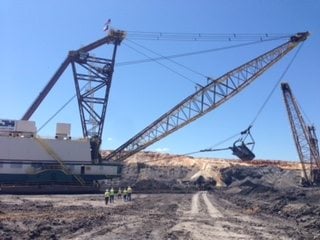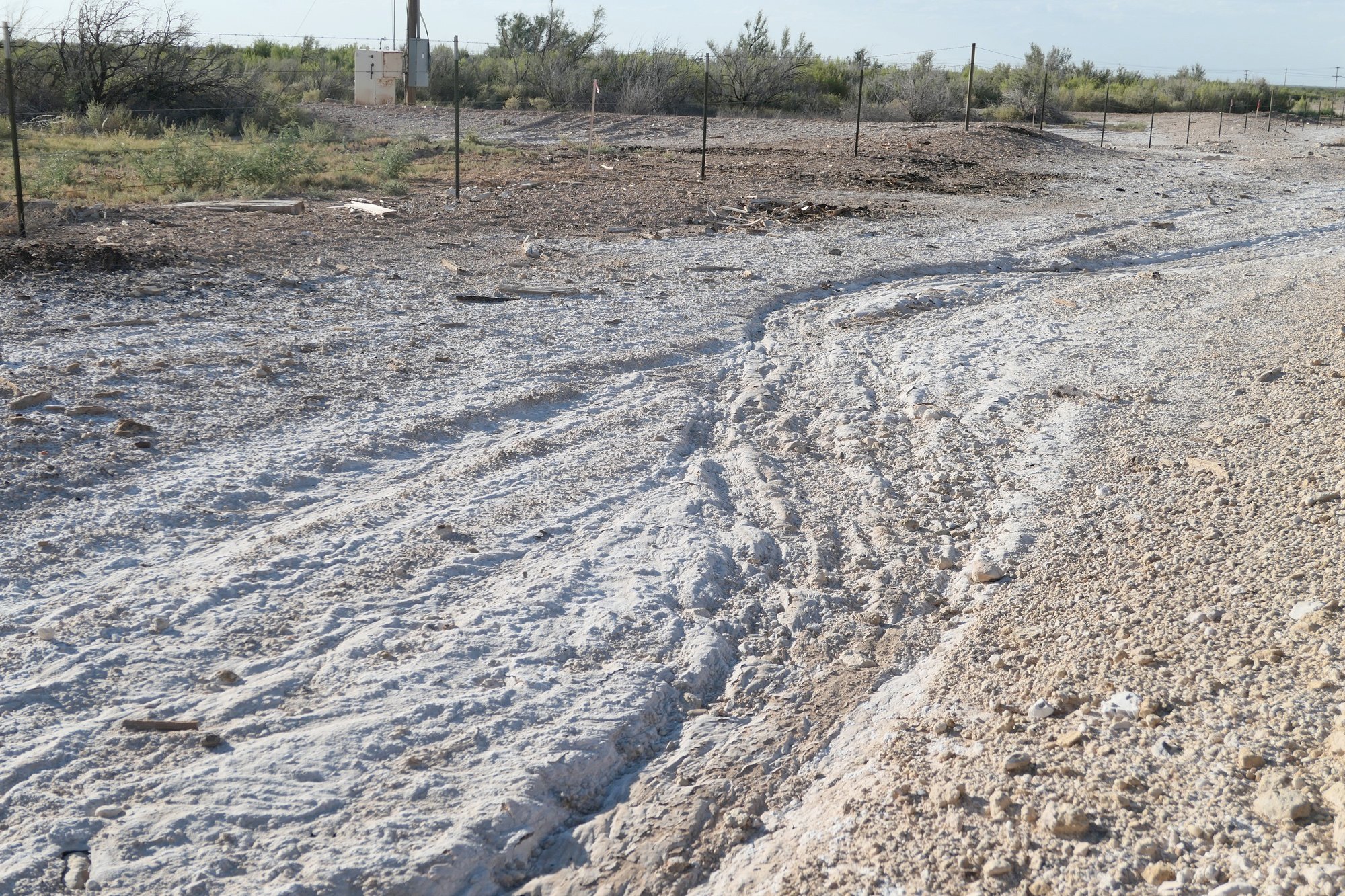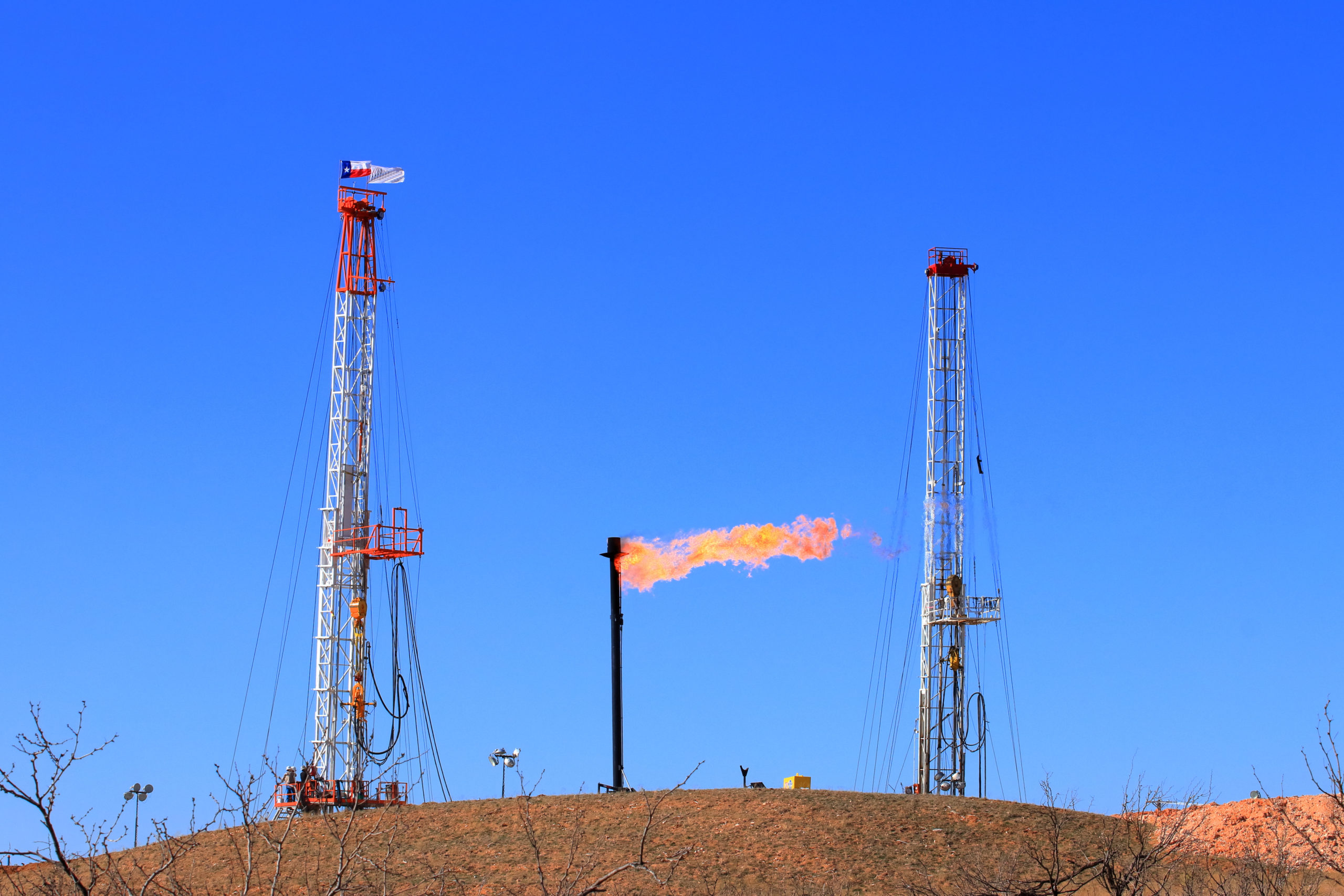
Green Groups Urge Lawmakers: Don’t Leave Taxpayers on the Hook for Coal Cleanup


Environmental advocates urged state lawmakers to require coal companies to set aside cash or bonds to cover the cost of cleaning up mines instead of permitting companies to self-bond, a process that could leave Texans on the hook for more than $250 million in environmental cleanup.
“The backwards-looking instruments utilized by the Railroad Commission to evaluate self-bonding applicants are simply insufficient,” Christina Mann, a senior campaign representative with the Sierra Club’s Beyond Coal program, said at a seven-hour Sunset Advisory Commission hearing concerning the Texas Railroad Commission Monday.
As the Observer reported last week, Texas is currently allowing four coal mining companies to self-bond — or self-insure — for the estimated $250 million combined cost of cleaning up after their strip mine operations. The Railroad Commission’s leniency comes even though the coal industry is in rapid decline, with poor ratings from credit agencies and growing liabilities. The self-bonding regulations, which Mann criticized as nothing more than “a promise to pay,” allow financially weak companies to sidestep stricter federal requirements, the Observer found.
With at least 10 Texas coal plants battling negative cash flow, industry experts say that puts taxpayers at risk of being left to bear the $250 million cleanup costs at seven mines owned by the four companies.
The Sunset Commission, tasked with assessing the continuing need for various state agencies, heard from more than 70 environmental and public health activists and industry experts on issues ranging from moving the Railroad Commission’s authority over natural gas utilities to another agency to plugging old and abandoned oil and gas wells to prevent leaks.
The commission sought feedback on a scathing report published in April by its staff advisory committee on the inefficiencies and inadequacies of the Railroad Commission. The report found that the commission lacked transparency and needed to improve its practices to better protect the public from air and water pollution.
Key among the recommendations: Changing the Railroad Commission’s name to one that better reflects its duties, a controversial proposal that drew heated debate among lawmakers at the hearing.
East Texas Republican state Representative Dan Flynn told the Sunset staff that the name change seemed to have been recommended because “we’re getting drawn into this political correctness business.” Other legislators on the Sunset Commission pointed to the costs involved in changing the name and to what they viewed as the loss of its historical significance.
The Sunset Commission staff’s report also addressed bonding requirements for abandoned oil and gas wells, but did not recommend changes to the coal self-bonding program.
At the hearing, Travis Brown, president of the local community group Neighbors for Neighbors, pushed the commission to include changes to the coal self-bonding program. Brown reminded the commission that in 2014, the Railroad Commission forced Luminant, the largest utility in the state, to switch from self-bonds to collateral bonds after it filed for bankruptcy.
“That was a wise move,” Brown said. “We think it would be even more wise for the Railroad Commission to require all strip miners in the state to no longer strip mine and make sure they’re obligated and have the resources to clean those up.”
Brown’s group has fought Alcoa, a strip mining and metal production company, over its mining and smelting operations for almost two decades. The Railroad Commission has allowed Alcoa to self-bond for $27.3 million in cleanup costs, despite the company’s below-investment-grade ratings from the credit raters Moody’s and S&P.
A report published last week by the consumer advocacy group Public Citizen urged the Sunset Commission to revamp bonding requirements for coal mine reclamation: “The Sunset Commission should recommend that the RRC update its rules to assure that they conform to federal rules; and require that each of the bonds and guarantors be reevaluated within a year to assure that they have assets of adequate value to cover the reclamation costs.”
State agencies typically undergo Sunset review every 12 years, but this is the third Sunset review that the Railroad Commission has faced in six years. Previous reviews in the 2011 and 2013 legislative sessions failed to produce substantive reforms. Controversial provisions — such as changing the agency’s name — proved too divisive, and lawmakers decided to keep the RRC in a kind of Sunset limbo.
The commission will likely vote in November on its staff advisory committee’s recommendations, which will include public input from Monday. Those recommendations will then be presented to the full legislature for adoption when it convenes next year.


